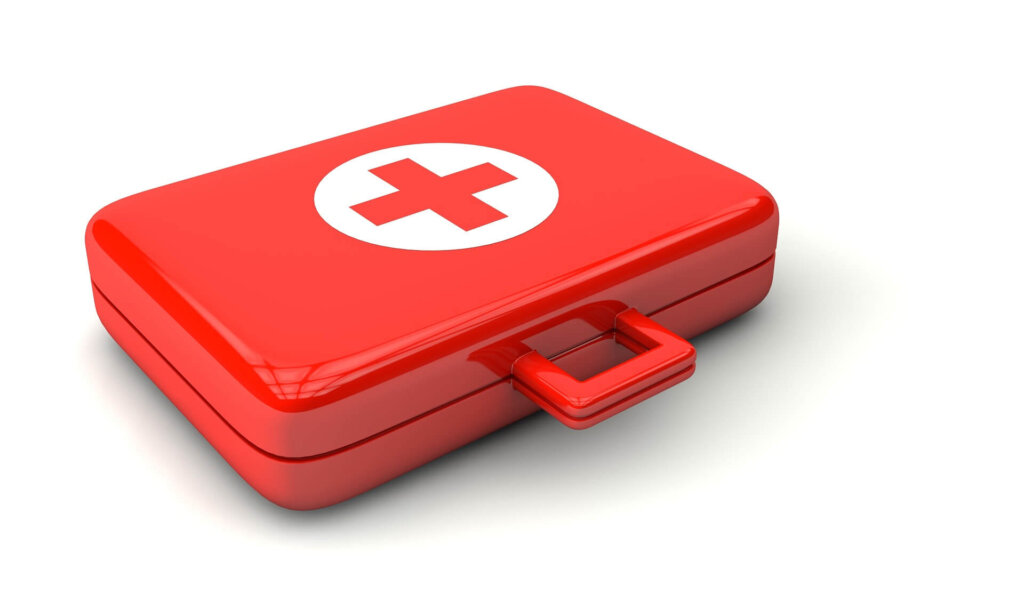
The Best Vacation Rental Safety Essentials
What Are Vacation Rental Safety Essentials?
Some guest complaints are inevitable. Not every guest will like the way you’ve decorated, and some will even blame you for bad weather! However, one area where you never want a complaint is your vacation rental’s safety.
There are a few things you have to take care of in the early stages of preparing your Airbnb for guests, and some things that you will have to maintain on an ongoing basis.
What Are Your Local Safety Rules?
The first thing you should do is make everything in the house is up to code. Vacation rental safety requires adherence to both general safety principles, as well as region-specific rules. Be sure to take note of any city-specific requirements. For example, all of our rentals must have railings of a specific height and width anywhere there are stairs. Violations can result in a fine from your municipality, and in some places, you won’t be able to operate as a rental until you’ve met all the local safety requirements. Contact your local code enforcement office for your County, City, or Town and ask if there are codes or restrictions you must adhere to.
Fire Safety Essentials
Every house should have multiple carbon monoxide detectors and smoke detectors. It is good practice to have one on each floor, and one in every bedroom. You can get a combination smoke/CO detector to meet both CO2 and smoke detector safety regulations in one. You should also have at least one fire extinguisher per floor, and lighting leading to and indicating the emergency exit. Make sure that all of the carbon monoxide and smoke detectors in the house have batteries and are working properly, and ensure that the fire extinguisher is in good working order.
(Note: Be sure that you check for recent recalls when obtaining your fire safety equipment. Kidde, a popular brand of fire extinguishers, recently recalled millions of fire extinguishers.)
Electrical and Wiring Safety
Most city rules will require that kitchens and bathrooms have GFI outlets to protect against electrocution. Newer homes typically come equipped with these, but you may have to hire an electrician or other qualified technician to make the upgrade in your home. Vacation rental safety can be more involved when you’re dealing with an older house, so be sure to anticipate and address potential issues before your first guests arrive.
First Aid Safety
Invest in a well-stocked first aid kit that guests can easily find (and note the location in your welcome binder and on your listing). We usually have ours mounted in the main bathroom, clearly visible on the wall. This should include antiseptics like rubbing alcohol, band-aids, an ace bandage, antibiotic ointment, burn ointment, calamine/anti-itch cream. You may also want to provide region-specific items, like aloe-vera for sunburns if you’re in a warm climate, or bee-sting salve anywhere that’s a common problem.
Pool and Hot Tub Safety
Make sure that your hot tub has a cover that seals securely and explain how to use it in your welcome book. Be clear about the rules (no one under a certain age, no one with a medical condition). If you have any kind of gate or enclosure for either a pool or a hot tub, be sure there are no broken latches. Schedule regular cleanings to keep them in good working order. Some localities require specific water quality standards be met for hot tubs and pools in rentals, so be sure to confirm if these requirements exist for yours.
Also, take note of your water heater settings and avoid setting it too high. Guests with small children will appreciate that they don’t have to worry about their little ones getting scalded in an unfamiliar house.
BBQ and Fire Pit Safety
BBQ grills and fire pits can be great attractions that make your home more appealing. Be sure to take sensible precautions, however, so that vacation rental safety remains a priority. If your fire pit or BBQ requires a propane tank, make sure to provide clear instructions for use, especially the on/off function. We recommend an additional fire extinguisher near the fire pit or BBQ as well, in addition to the one (or two!) you’ll have indoors. Propane tanks should also be secured to the area where it is meant to be used. You don’t want a rogue guest taking a propane tank inside for whatever reason, and causing a major fire hazard.
Fireplace Safety
Whether your vacation rental has an electric, wood-burning, gas, or combination fireplace, you’ll want to have clear safety instructions for proper use. Make sure guests know what a flue is and which way to turn it for best results. Many people are familiar with one type of fireplace, but may not be familiar with yours, so make sure they know to turn off the gas after use, properly extinguish the fire, etc.
Your smoke and carbon monoxide detectors will need to be checked regularly to make sure they are all working. You will also need to periodically check your vacation rental’s locks and doors to make sure that there are no needed repairs.
Any fire feature should be regularly serviced as well. Replace the propane in your gas fireplace as needed so that renters don’t take matters into their own hands. You can easily measure the tank weight to see how much is left. Ensure that your chimney is cleaned periodically.
For more on safety, you can visit Proper Insurance’s article which covers the most overlooked aspects of maintaining a vacation rental property.
As always, take guest complaints that could affect their safety seriously. Keep up with the general maintenance of your home to ensure vacation rental safety is never compromised.
About the Author Kevin Kelsey
Originally from Connecticut, Kevin moved to Los Angeles in 2013 and worked his way up to becoming an editor on award-winning reality TV shows. Kevin owns 4 short term rentals in Southern California and founded AirHost Academy to help other hosts improve their business.
Related
How To Gain a Competitive Edge & Thrive in Your Evolving Vacation Rental Market
The Five Best Airbnb Products That We Found on InHouse
OwnerRez: Empowering Vacation Rental Owners with Software Solutions
How To Start An Airbnb Business
New Short-Term Rental Bans, Rules, and Regulations: How Hosts Can Adapt
How To Create A Mid-Term Rental That Guests Will Love
A Quick Guide to Short-Term and Mid-Term Rentals: Which One Is Right For You?
How to Find the Best Location for Your Next Airbnb
